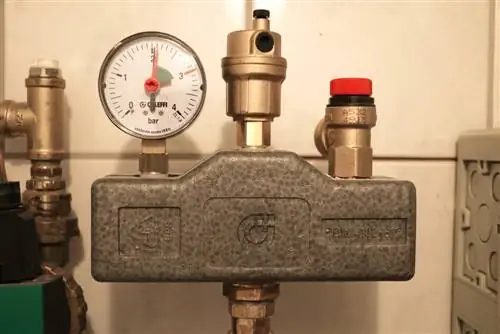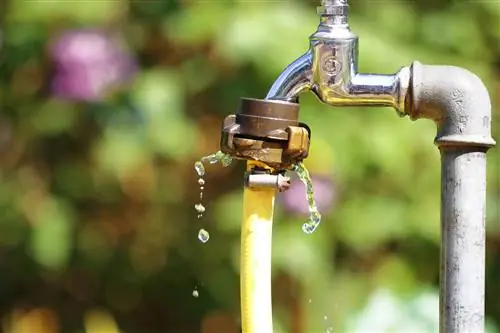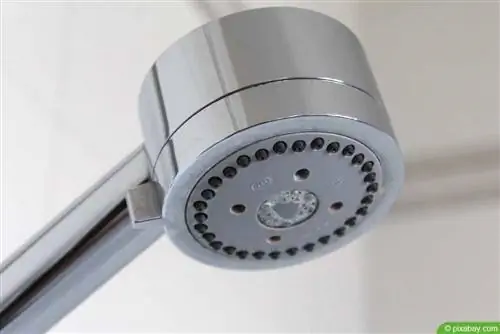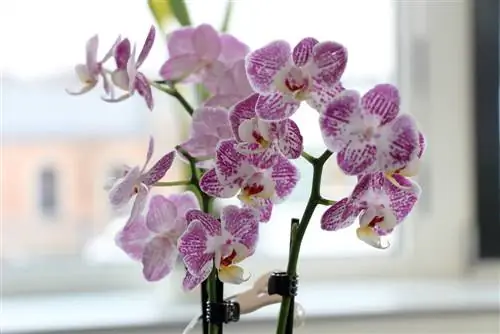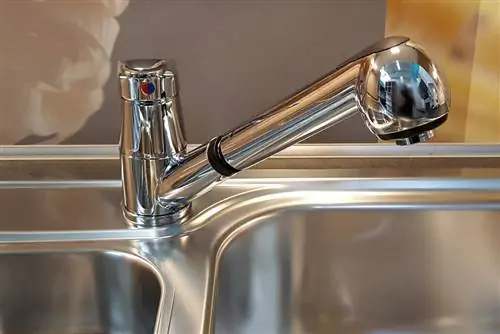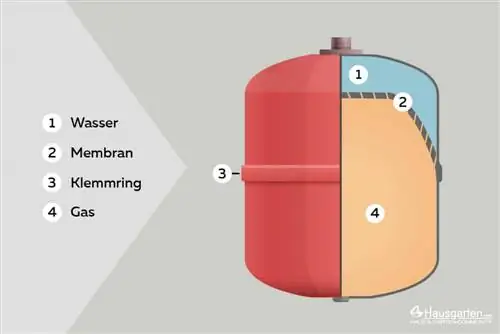- Author admin [email protected].
- Public 2023-12-17 03:39.
- Last modified 2025-01-24 12:45.
The investigation into the cause begins at the latest when the radiators in the apartment no longer get really warm or stay cold. What's going on? The heating is running and the water temperature is correct, as the thermometer shows. What is usually overlooked is that pressure also matters. In fact, values that are too low can mean that radiators are no longer supplied with sufficient warm water. If you notice a decrease in heat output in your apartment, it is definitely advisable to check the system pressure and increase it slightly if necessary. However, the following definitely applies: too high is not good either.
A question of pressure
In order to understand the importance of pressure in a heating system, you first have to understand its structure and how it works. Such a system basically consists of several individual components, which together form a system, primarily the so-called heating circuit. These components are essentially:
- Boiler
- Water pump
- Heating pipes
- Radiators
- Return pipes
The boiler heats the water. The water pump transports it via the heating pipes to the individual radiators, where it gives off heat. The cooled water is finally transported back via the return pipes. The cycle begins again. The water pump is therefore of crucial importance in this system. Using the pressure it generates, the water is pumped to where it needs to go. As a rule, meters in altitude have to be overcome. If the water pressure is too low, less warm water reaches the radiators that are furthest away from the pump.
Pressure adjustment and pressure change
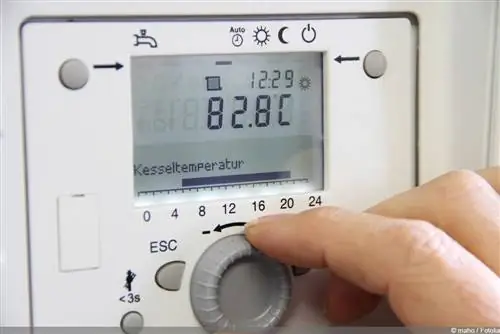
The ideal pressure setting depends on many factors. The size of the building plays just as important a role as the number of radiators installed in it. In general, it can be said that a pressure setting of 1 to 2 bar is sufficient or ideal for a single-family home. The exact value is calculated by the heating engineer when installing the system and then preset accordingly. If the value is too high, this often leads to higher heating costs or even damage to the system.
But how does a pressure change come about?
Mostly due to air entering or escaping from outside. Although a modern heating system is a closed system, this can lead to pressure losses, especially in older systems.
Tip:
If a loss of pressure is detected, the performance of the water pump should definitely be checked by a specialist. It is very common that this needs to be replaced.
Pressure calculation
The water pressure can be increased manually at any time. How exactly this works varies from system to system. It is best to consult the manual provided. The much more crucial question, however, is which value should be set. Calculating the ideal pressure optimally is a relatively difficult undertaking that should usually only be carried out by a professional. However, there is a rule of thumb that you can follow as a homeowner. This states that the water pressure should increase by 0.1 bar per meter of altitude that must be overcome. This can then be easily calculated.
Example:
- Boiler and water pump in the basement
- The furthest radiator is ten meters above it
- Invoice: 10 x 0, 1 bar=1 bar
A necessary basic pressure of around 0.3 bar must then be added to this value, which ultimately leads to a value of 1.3 bar. However, all of this information is not set in stone, but only a guideline. The problem with this is natural pressure fluctuations in the system, which are completely normal. And something else is important: The value determined above represents something like a minimum pressure.
Note:
As the temperature of the heating system increases, there is automatically an increase in pressure due to the greater expansion of the water. Conversely, a reduction in temperature leads to a pressure drop.
Call a specialist
Problems with the heating usually cannot be solved so easily. As already mentioned, it is a very complex system where solving one problem can entail other difficulties. It is therefore not advisable for a layperson to try it out themselves. The risk of something going wrong and causing much greater damage as a result is simply far too great. To be on the safe side, you should always consult a specialist. He can not only optimally calculate the pressure, but also find out what the cause of a possible pressure loss is. Since the water pump in particular is a typical wearing part and can only be replaced by a professional, you can't avoid a heating engineer or plumber anyway.

